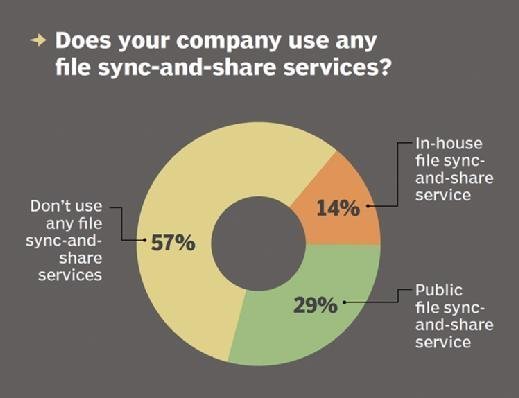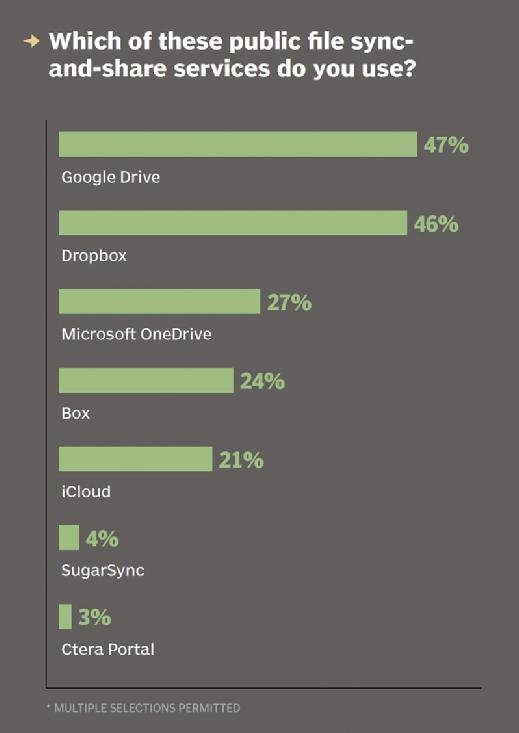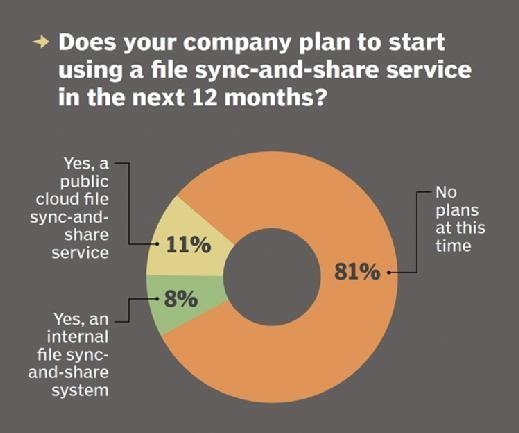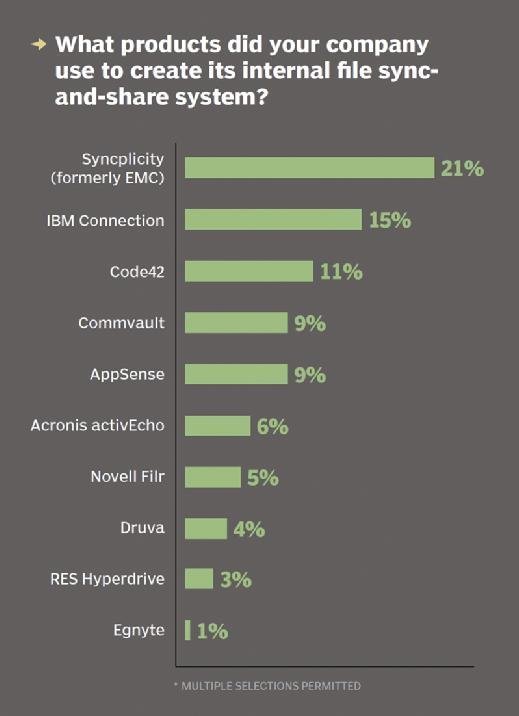
DrHitch - Fotolia
Companies use caution with cloud file sync and share
Though nearly half of companies are using cloud file sync-and-share services, those who aren't using it have taken a wait-and-see approach.
With all this talk about BYOD and mobile and the cloud, you'd think that everybody is hooked into one of the many cloud file sync-and-share services, but our survey paints a different picture. While a healthy 43% say their companies are currently using some form of cloud file sync and share, more than half are still sitting on the sync-and-share sidelines.
That's probably not all that surprising given the widespread trepidation about shadow IT services that users tap into with the knowledge -- or control -- of IT departments. That might also explain why a third of companies using cloud file sync-and-share services now are using systems that are internally installed. Those companies have undoubtedly decided that it's better to provide a service that they can control rather than wondering where all that corporate data has wandered off to.
Companies preparing to take the leap into cloud file sync and share also seem to be cautious. Of the 19% who reported that their companies will institute sync and share sometime in the coming year, nearly half will go the internal app route.

When companies have chosen to go with the external cloud file sync-and-share option, the favorite alternatives read like a sync-and-share who's who: Google Drive (47%), Dropbox (46%), Microsoft OneDrive (27%) and Box (24%).

The most popular in-house implementation choices are Syncplicity (21%), which was recently sold off by EMC, and IBM (15%). The rest of the field is fairly bunched, with Code42 (11%) holding a slight edge over Commvault and AppSense, both registering 9%.









